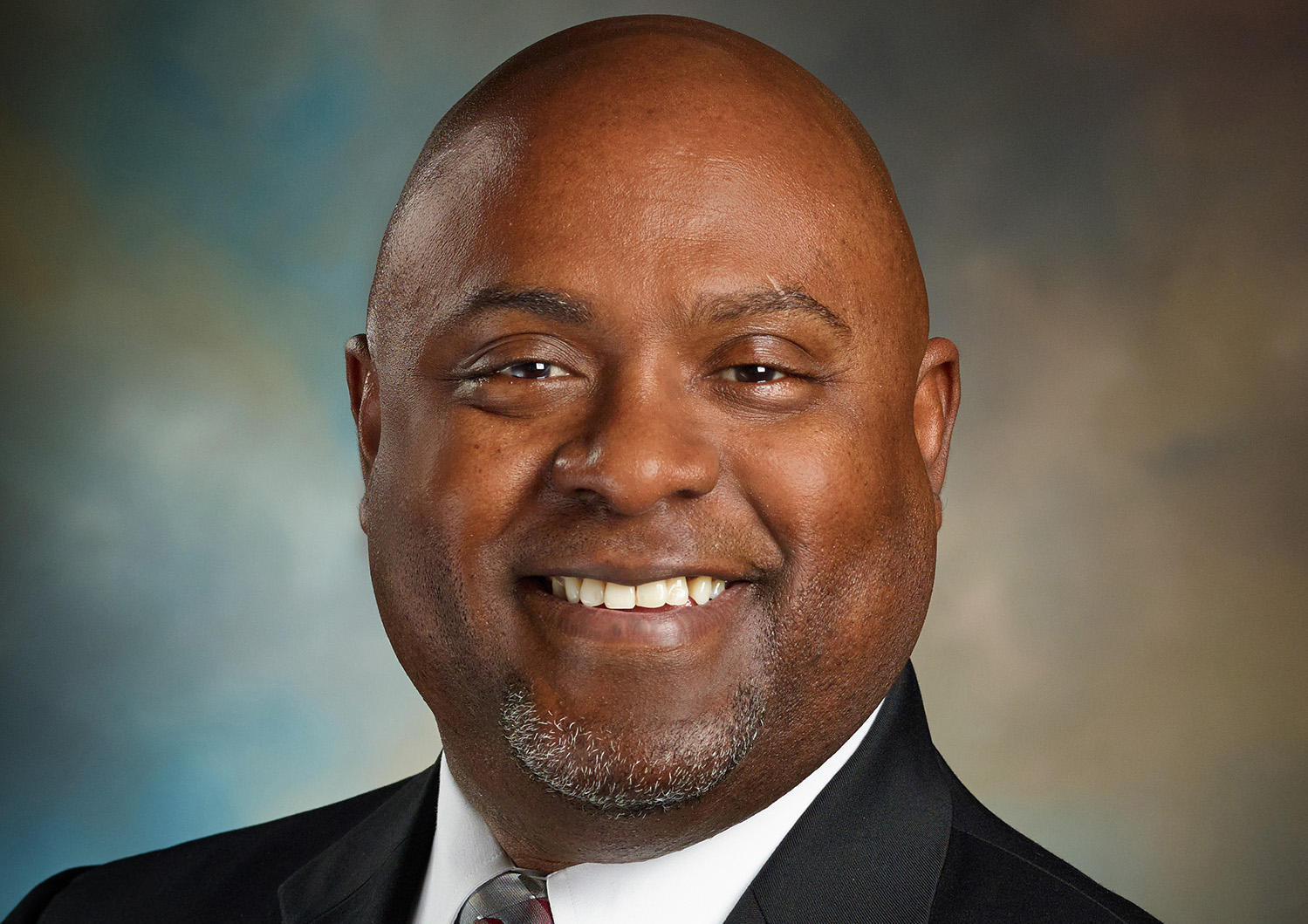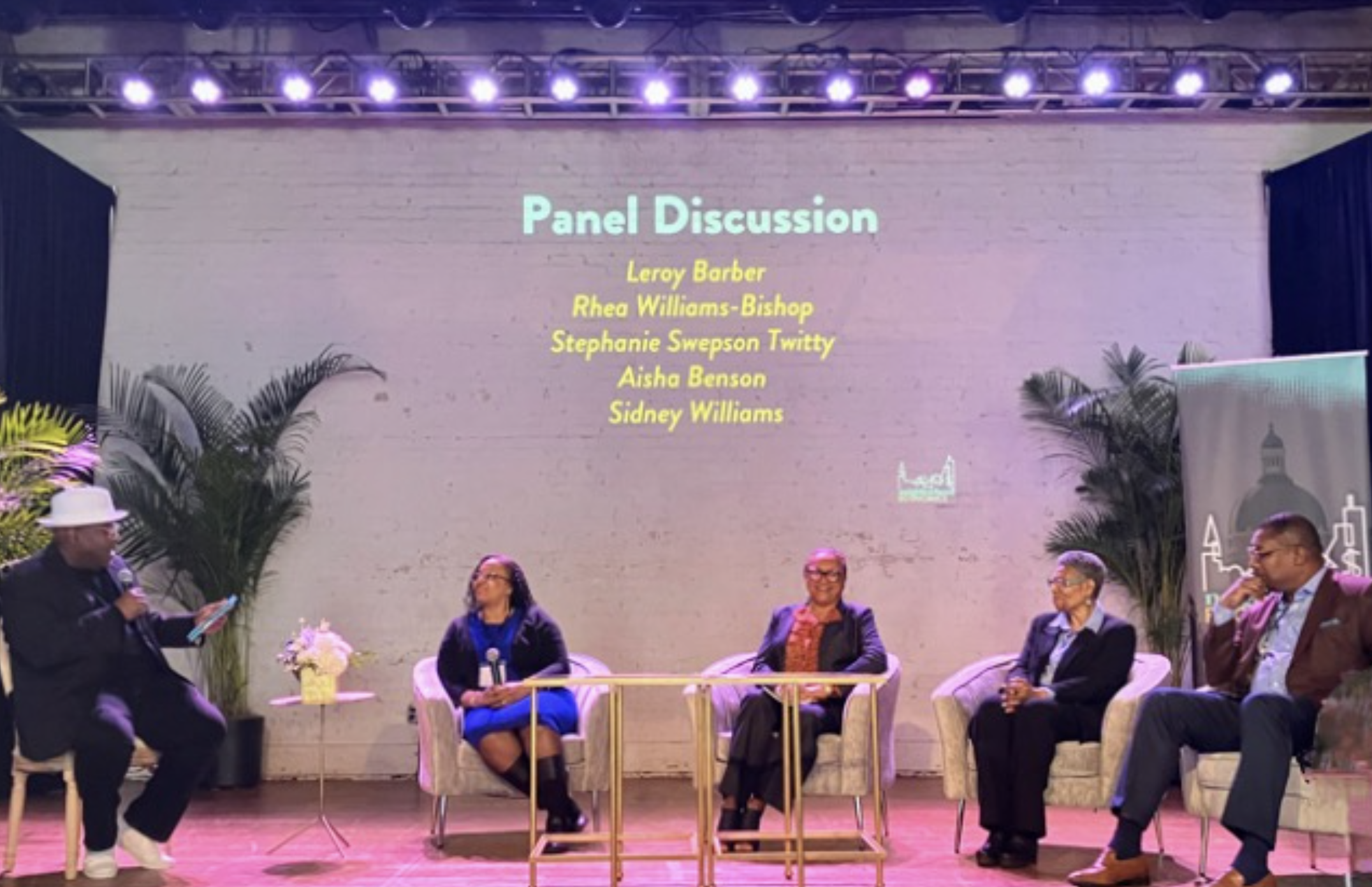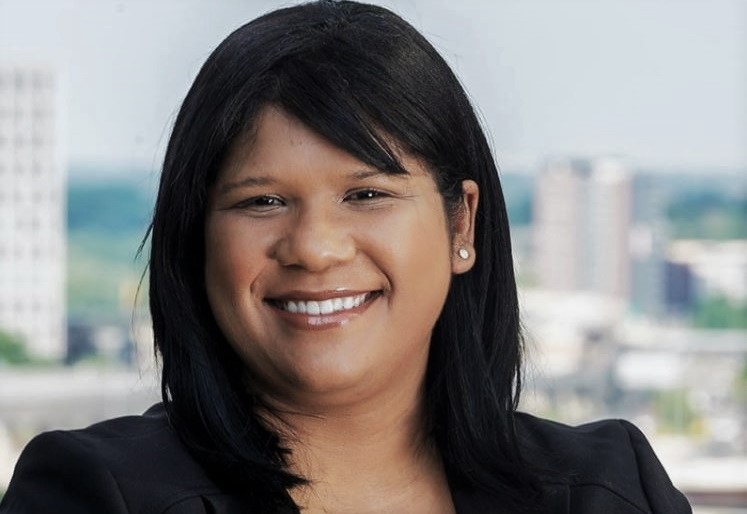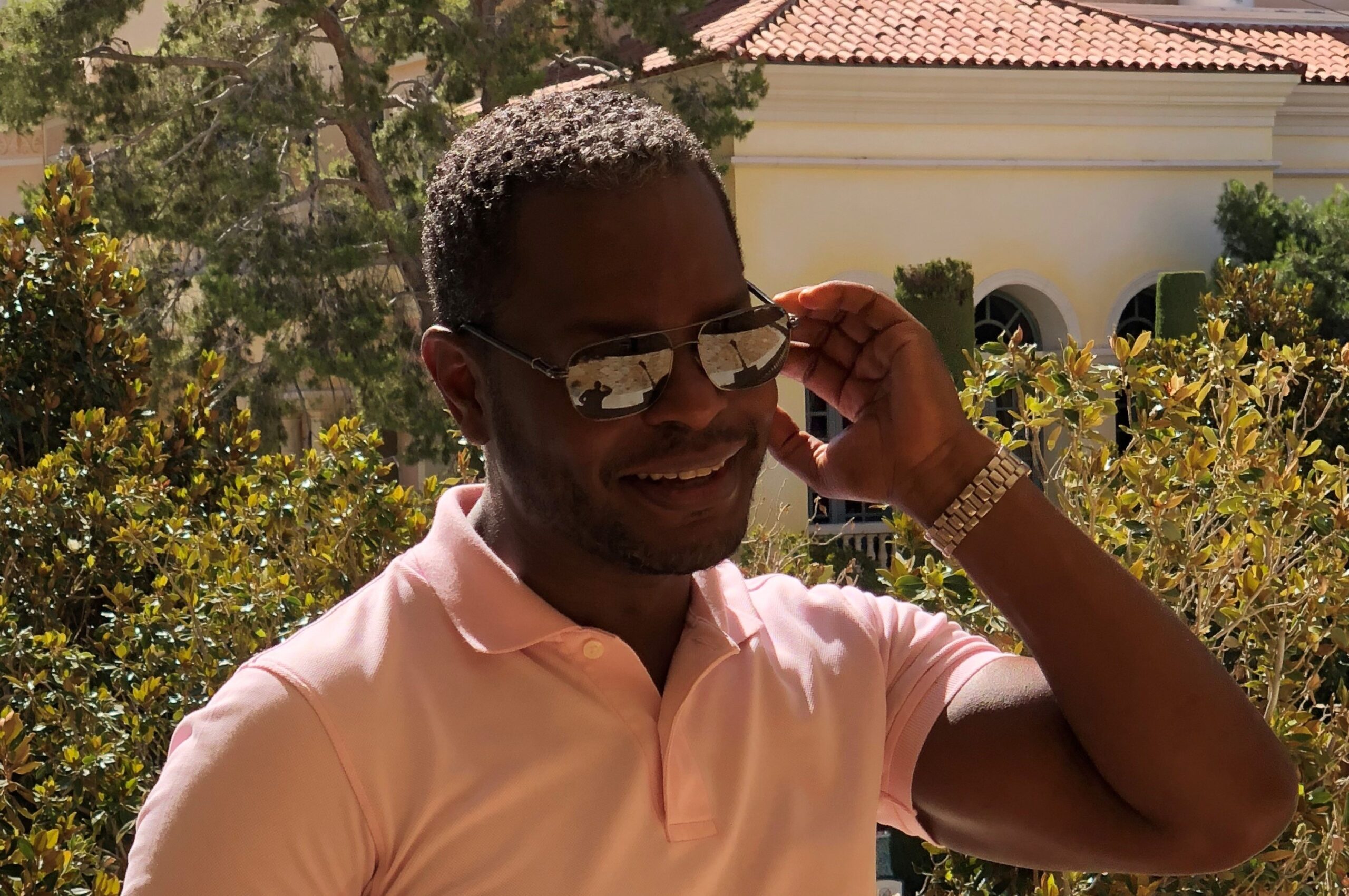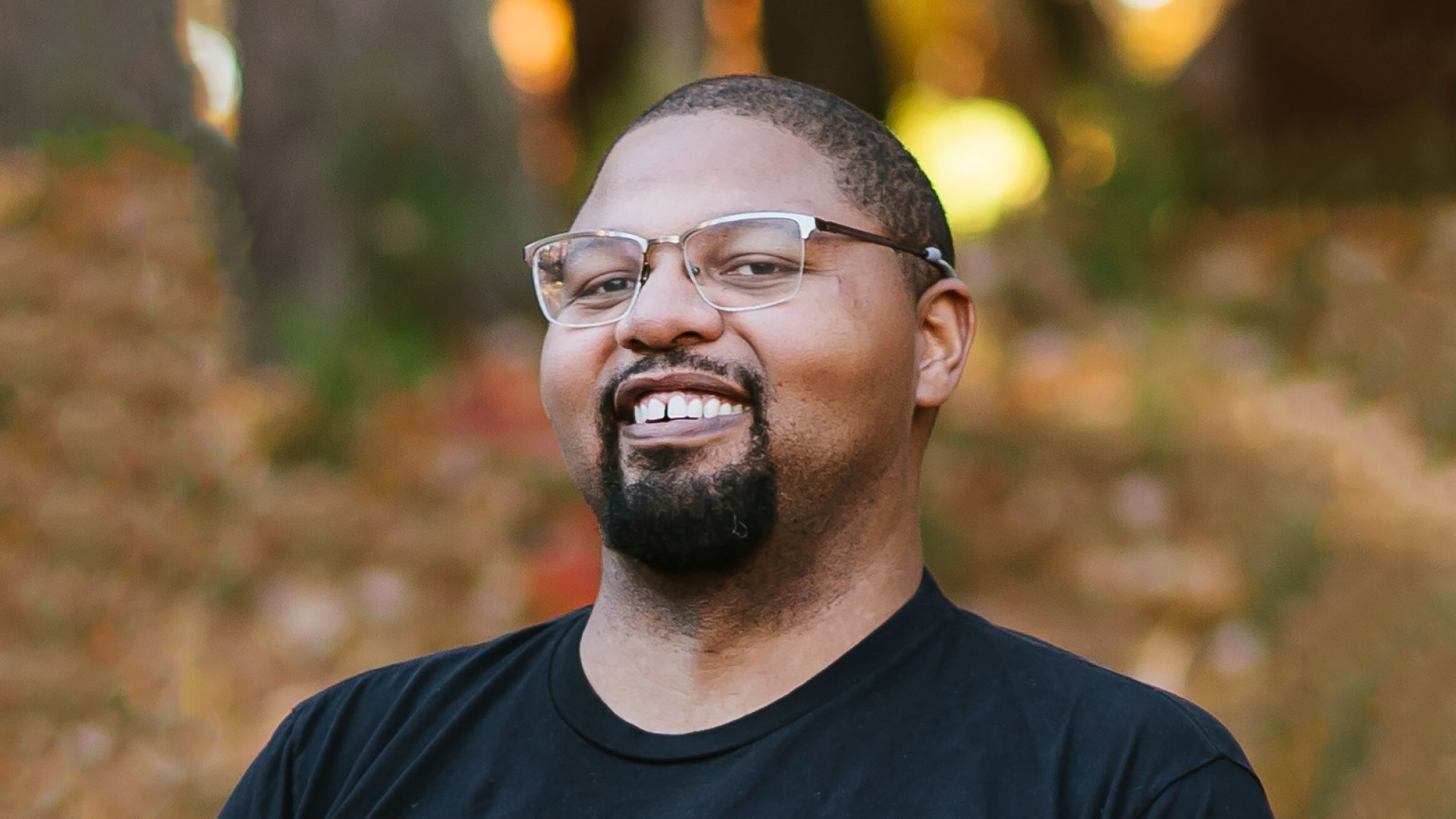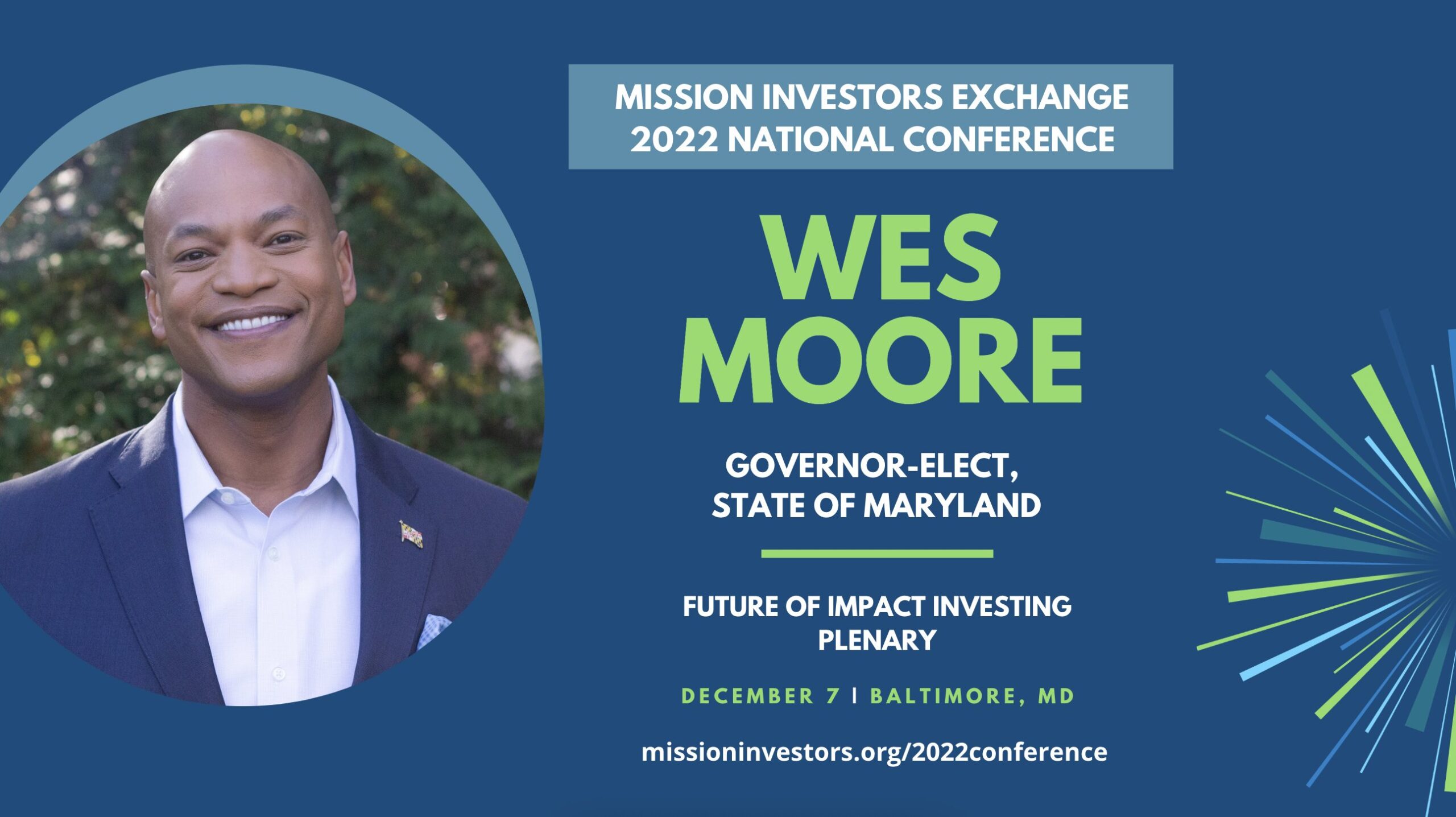ImpactAlpha, Oct. 21 – U.S. President Joe Biden wants to ‘build back better.’ Joe Scantlebury is out to make sure the rebuild includes all Americans.
“I grew up in a single-parent household. I’m real clear on the hardships that we face,” says the incoming CEO of Living Cities, a 30-year-old collaborative of 19 philanthropic foundations and financial institutions investing to close racial income and wealth gaps. “It’s important that we have policies that really enable the majority of Americans and a significant portion of our population to participate in the full economy.”
Brooklyn-born Scantlebury takes the helm at the nonprofit following the departure of long-time CEO Ben Hecht.
Scantlebury said the outpouring of empathy following the murder of George Floyd created an opportunity to reach for a collective humanity. Now it’s time to deliver, Scantlebury says in a Q&A with ImpactAlpha.
>>> Go deeper: Revisit ImpactAlpha’s earlier series with Living Cities for lessons in “Investing in Racial Equity.”
America for too long has undervalued the human and community assets in population centers we call cities, says Scantlebury. Race-blind policies and investment strategies have exacerbated inequalities. “How do we actually make sure that the potential and the intelligence and the gifts are invested in in such a way that you see shared prosperity?”
To model the inclusive future, Scantlebury draws on decades of lessons from Living Cities itself, which has been testing race-intentional investing in Albuquerque, Memphis, Minneapolis/St. Paul and other cities. The tools for such an approach include alternative underwriting practices, worker ownership structures, support for local startup ecosystems, inclusive local policies and shifting power and decision-making to investors of color.
“The strategy for us is really one of transformation,” says Scantlebury. “How do we transform a country using cities as the template?”
The organization’s Catalyst Family of Funds has deployed nearly $80 million across two funds to scale community development finance institutions, test pay-for-success models and back lending models to mitigate the impact of foreclosure. Recent investments in Kim Folsom’s Founders First Capital, Melissa Bradley’s 1863 Ventures and John Green’s Blackstar Real Estate Partners and other Black, Indigenous and fund managers of color aim to increase investments in entrepreneurs who generate wealth for their communities.
The strategy has “led to growth and opportunity. We can see it. It’s tangible,” says Scantlebury.
Living Cities plans to introduce a third, more expansive fund to put capital in the hands of BIPOC fund managers.
“There were $50 billion of pledges made to address racial inequity, and we’re still waiting to see whether those resources actually arrive,” Scantlebury says. “Our hope is to actually demonstrate the how.”
ImpactAlpha: How has your work on the ground prepared you to lead Living Cities?
Joe Scantlebury: Learning the value and the assets that people in communities have is what Living Cities ultimately does well. That means figuring out how to convene and bring people together. It means being very intentional about having a table of unlikely partners and friends, who ultimately see the potential in these population centers we call cities. And then investing in their assets, their inherent ability to actually bring about positive change. It’s there. It sometimes needs support and help and I think that Living Cities does that very well.
ImpactAlpha: Living Cities operates at a nexus of philanthropy, the private sector and the public sector. How can the organization leverage shifts underway in each sector to drive progress in closing racial wealth gaps?
Scantlebury: For 30 years, Living Cities members – think of the foundations as well as the financial institutions who have come together in this collaboration called Living Cities – they saw inequities. They saw poverty and they wanted to have a hand in addressing it. So Living Cities ended up having a commitment to do community development, which was the jargon at the time. You have specific strategies around homeownership and housing. Specific strategies around community development financial institutions and strengthening that field. You’ve even had advocacy around Community Reinvestment Act policy as well. So you’ve had all these efforts.
The board at Living Cities began to really think – and I credit the staff here but you also had board members who championed this as well – how do we become intentional around race? What we’ve seen is that all of the non-targeted efforts, frankly, didn’t address that very physical gap. We know that racial equity is critical. It’s uncomfortable. It’s hard as a person of color, as a Black man in America, to be talking about race all the time. But it’s inevitable.
If I’m not mindful, I could find myself driving down any street in America, be stopped by police and whether or not I’m armed and not, take my life in my hands. I could find myself with great credit scores trying to build a business and be denied access to credit. I could be denied home improvement and equity loans, even though I pay my mortgage on time. And I’m never really sure whether the reason I’m being denied is the same reason someone else would be denied or it’s because I’m a person of color showing up in a place where the tradition and the practice says, ‘I don’t belong here and nor should I be granted opportunity.’ The perception of me as a risk is higher than for some other people.
ImpactAlpha: If you’re successful, what does that look like?
Scantlebury: As we become a nation that is predominantly people of color, we have to ask ourselves: who do we want to be? What I saw across America in those protests, many of them were communities that are predominantly white saying, ‘Enough. We don’t want to do this. We don’t want to be this.’ I saw us reach for our collective humanity. The question mark for us is: How do we demonstrate that? How do we identify the things that keep us stuck in a status quo that does not work for the majority of Americans? And for this growing majority, how do we actually make sure that the potential and the intelligence and the gifts are invested in in such a way that you see prosperity, a shared prosperity?
Imagine a country where we’re very serious about anti-discrimination in the workplace. Imagine now too, we say not only that, but we’re going to invest in talent. We’re going to recognize potential. We’re going to try to scale that potential. Yes, you came out of prison with a criminal history, but you’re actually really, really talented and you’re prepared to actually join the economy in a positive way. We’ll invest in you. We don’t want to create barriers to your opportunity. Yes, we thought because you’re Black that maybe you wouldn’t fit our culture but as we become a nation of tremendous diversity, we’re happy to have you join our Latinx-led bank. What would that look like?
ImpactAlpha: Living Cities has been at the forefront of support for financing models that can make the economy more inclusive. What’s next on that front?
Scantlebury: It’s not just the next thing. It’s ‘How do we make sure lessons are learned and shared?’ In philanthropy, sometimes we can be really attracted to the next shiny thing, the next jargon, the next rhetoric, the next brilliant idea. But we’ve done so much for so long that has helped many people. How do you actually scale what we’ve done? And scale has turned into its own jargon as well. I’m simply talking about putting the knowledge and the experience in new hands, and being available to answer questions, so that people can really think through, ‘How do we use the experience of all these investments that have been made and the outcomes that we see. How does it apply in my community, in my city?’ In my travels I’ve been able to see that the kind of needs we’re talking about, they’re all universal needs.
ImpactAlpha: What strategies are working to drive inclusive?
Scantlebury: I think we have evidence to share. I think we can say the diversification of fund managers has led to growth and opportunity. We can see it. It’s tangible. We can see from our Closing the Gaps and the other place-based work and accelerator work the things that cities can do when they’re resolved to do the work. We can see how you can have a tough conversation around race and still come together through healing and resolve to do some things together, as a city, as a community, as institutions. We can see that. What we hope is to encourage more people to have the courage to step into an inclusive room with others.
ImpactAlpha: What are some of your other priorities going forward?
Scantlebury: Without making any news today, we definitely want to double down on what we’ve learned from our Catalyst funds. Our hope is to introduce a third fund that would be even more expansive and more enabling of many of the efforts that we heard about from people over the past year. There were $50 billion of pledges made to address racial inequity and we’re still waiting to see whether those resources actually arrive. Our hope is to actually demonstrate the how.
Our work in cities, the Closing the Gaps work, is very promising, very hopeful, but it’s also harder. It takes a longer time. We want to get back on the ground and meet people and listen with free ears and try to really understand what communities are grappling with. And try to really think through, what are the barriers in particular cities that need to be addressed? What are the capacities that need to be built in public leaders but also private, philanthropic partners and equity partners? We’re going to double down on that.
ImpactAlpha: It sounds like you value the work that’s been done, you want to do it better, at a larger scale and in more places.
Scantlebury: The strategy for us is really one of transformation. How do we transform a country using cities as the template? There have been many innovations that have been introduced to us – tools, techniques, there’s goodwill. But talking about transformation, I hear the president talking about Build Back Better. I celebrate that alliteration. It works. The struggles that his party is having right now over where to put the point of emphasis – hopefully they’ll come to some conclusion and then we’ll go on and hopefully these investments will actually show up. The question mark that I have and that we have is, how do we make sure that these are done in such a manner that they include all Americans?
If we’re truly talking about building new infrastructure, what needs to happen so that when you and I go past a road construction crew, all of the women of color who are working there aren’t simply holding flags, but actually operating the machinery, and maybe even owning the company that’s doing the work? How do we make sure that’s the reality? That should be our future: A future of people who we’ve invested in, who are now owners of enterprises. People who are seeing communities as theirs and places of opportunity versus places of despair, being welcomed into the economy as opposed to being seen as a potential risk.
The transformation that I hope Living Cities can help cities demonstrate is that everyone can be included. We have to have a conversation about those folks in our economy, who are central to our economy, but whose wages and inclusion and economic opportunity has been suppressed. We have to talk about those people who come to our country. We have a need for new people in our country. We don’t have an immigration policy, but we know that it’s a clear part of our economic corridor. Living Cities understands that all of the people who make up our communities deserve a fair chance and an opportunity, and the current practices and policies undercut that. We create a class of newcomers who never arrive.
ImpactAlpha: Last year, former employees of Living Cities penned an open letter calling out a ‘toxic and racist’ culture within the organization. How has that impacted Living Cities? What does it mean for your work going forward?
Scantlebury: I feel very fortunate that the organization has had that moment. Any organization that is actually going to do racial equity work has to look at itself, and has to actually admit to being on a journey of growth and understanding. And I think Ben did that really, really well. He might be more critical of his tenure and his work. But I think that it takes courage to step in that room and to be part of that conversation. And whether the feedback comes from staff who left or incumbent staff, I think we always have an opportunity to grow and learn. I think staff have an opportunity to grow and learn, and we’re going to continue that learning journey together. We can’t talk to cities about racial equity and not be willing to actually look at ourselves.
ImpactAlpha: Last thoughts?
Scantlebury: We will be adding our voices to the policy conversation around what makes sense for our economy. Something like the children’s tax credits, earned-income tax credits – these are true poverty-abatement efforts that very often get talked about in policy jargon, but the truth is that this is the bread and butter for people. These are real resources coming to families, enabling women in particular, to support their families.
I grew up in a single-parent household. I’m real clear on the hardships that we face. And I think it’s important that we have policies that really enable the majority of Americans and a significant portion of our population to participate in the full economy.



